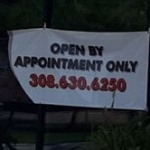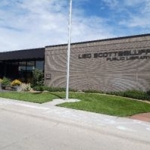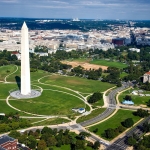I’m off to the Nebraska Library Association Annual Conference today (https://nebraskalibraries.org/2022_NLA_Conference__Up_For_the_Challenge). The conference is in Kearney this year, and I am looking forward to visiting Kearney Public while in town. Speaking of Nebraska, I’d like to share an event from my visit in 2020. To tell the story
Back in the early and mid 2000s, I used to take a lot of road trips around the upper Midwest to acquire city directories (street address sections, anyway), so that we could do a good job of historical research for our environmental clients. Logistics was hugely important to making the trips productive. I used to sit with state highway maps plotting out the most effective route to take to hit as many cities in a day as possible.

Knowing what hours each library was open was important as well. One library might close at 8:00 but if another was open until 9:00 that might change the entire route. Many is the time I was waiting at the front door at opening, or heard a warning that the library would be closing in 15 minutes. While I carried a cell phone, this was in the days before smart phones and when internet access was only readily available in library buildings. Few hotels had internet, or maybe just on one computer in the lobby. On top of that, one never knew what sort of copy machines would be available or how they accepted payment. On several occasions, I had to go to a bank to get rolls of dimes in order to make a few hundred copies. Needless to say, sometimes in the course of a trip a certain city was just too far out of the way, I would miss their open hours, or the copy machine just wasn’t up to the task. Those cities got missed and we had to resort to using other collections which typically did not have as comprehensive of coverage for our research.
During the summer of 2020 while Covid was raging and many things were closed, my family took a camping vacation which included driving from Minnesota to Colorado. After finishing the Colorado part of our trip in the Pawnee National Grassland, we decided to start back via Scottsbluff, Nebraska to see its National Monument and spend a (relatively) luxurious night in a hotel. Now Scottsbluff is one of those cities we had never managed to visit to collect directories, as it isn’t near other places which have had directories published. It was the only city in Nebraska large enough for Polk to publish a directory which we had not visited. Since our Scottsbluff directory collection only went back to 1963, I sure wanted to take advantage of the opportunity to build it out. So, just like in the old days, I drove over to the library at opening time where I was greeted with this sign.

Hoping against hope, I walked to the front door where I was greeted by a librarian who asked if I had an appointment? “No” I said, “is there any chance I could get in today?” I explained that I was just there for a few hours and had waited a long time to visit them. She decided that the library could accommodate me and gave me a one hour time slot to come in and do my research. Having described what I was there to do, I was given access to the local history room and a scanner. Now the scanner was one of those 8.5” x 14” models that make it really challenging to scan directories which really need an 11” x 17” bed. I knew that I couldn’t possibly acquire the pages needed in the time available, so I asked if I could make copies instead. The library had set a policy during Covid that only library staff could make copies, to reduce the risk of spreading the virus. Since several hundred copies were needed, I inquired if I could make them. At first, the staff repeated library policy that they had to make the copies, but they couldn’t possibly do that many on that day. Then they brought the question to a supervisor who realized that their Covid policy was designed to keep lots of patrons from using the equipment, but that one person could use it without risk to others. They fired up the public copy machine and the required pages were copied in time. I was so impressed that they were able to judge the situation and make a decision that the rule didn’t apply in this case. If they hadn’t, our research would only go back to 1963, instead of 1928 which is the earliest street directory. Kudos to the Scottsbluff, Nebraska Public Library staff, and THANK YOU!


